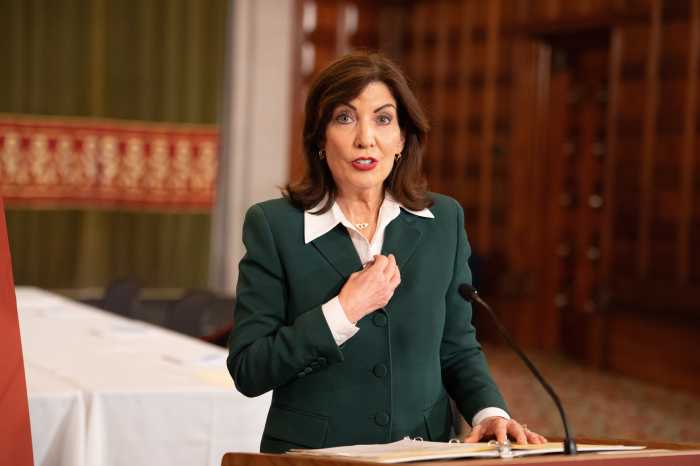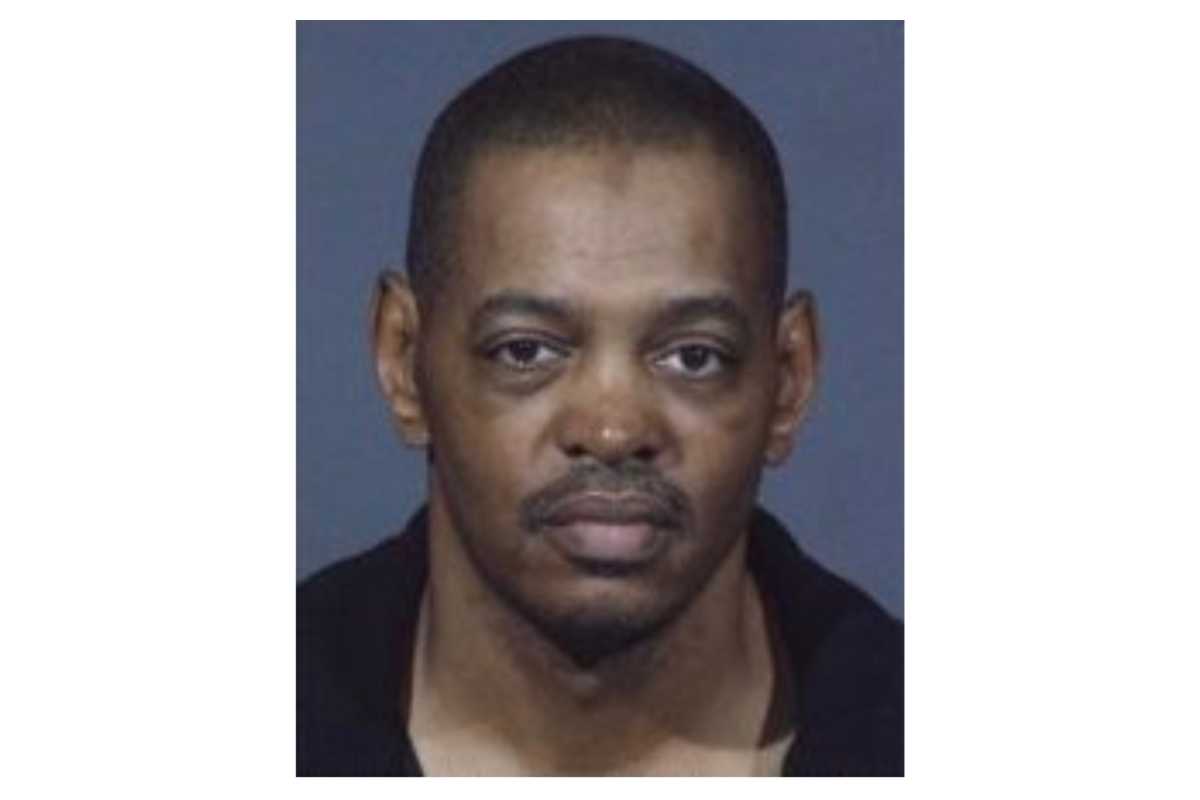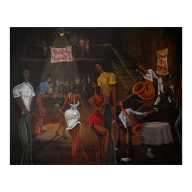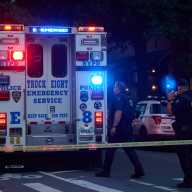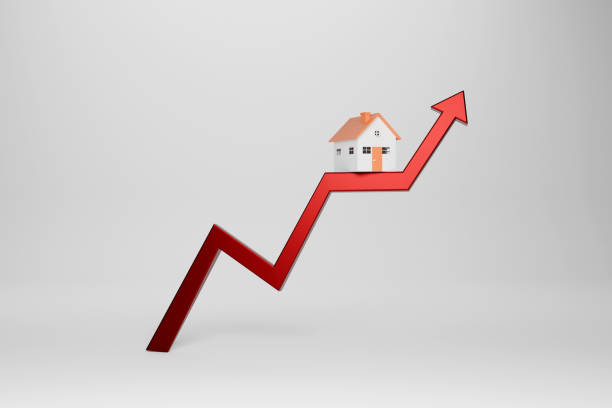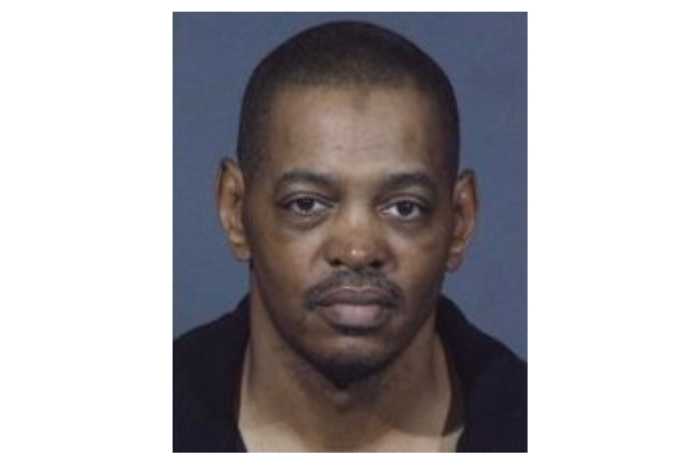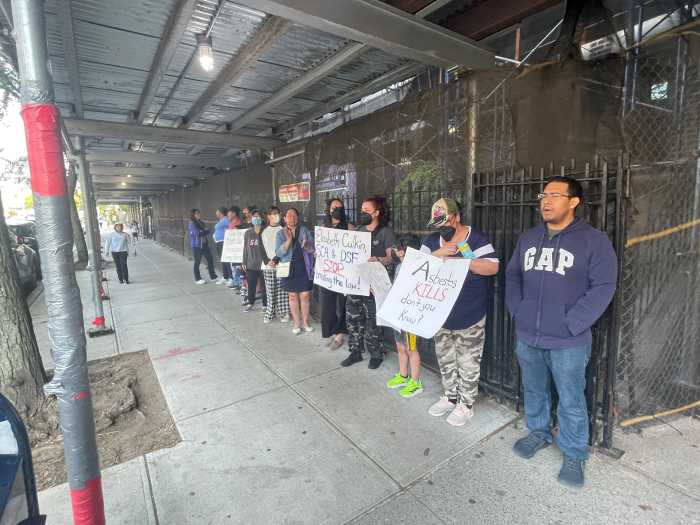 [/media-credit]
[/media-credit]
The new environmental sustainability program, dubbed the “Model Block” project by Manhattan Borough President Scott Stringer’s Office, promises to provide residents and storeowners along E. Fourth St. between the Bowery and Second Ave. with new energy-efficient appliances largely funded by the state. The program’s goal is to reduce energy consumption and minimize electricity use and other expenses throughout an entire city block, according to Stringer, who is working with the Fourth Arts Block, among other E. Fourth St. organizations, to launch the initiative.
“What I wanted to show was, in order for us to actually achieve these goals, we needed to have a bottom-up approach,” Stringer explained. “We have to build a movement that’s grassroots-based, to get people on the streets energized about an environmentally sound community.”
A major beneficiary of the initiative will be tenants of the Cooper Square Mutual Housing Association, whose 21 buildings are or will be participating in the state “weatherization” and energy savings programs.
The Model Block initiative began in August with the White Roofs project. A group of volunteers from all over the city painted 18 of the Mutual Housing Association’s buildings’ rooftops with solar-reflective white paint. The coating reflects 90 percent of sunlight, which helps to lower electricity usage and cooling costs.
“When we were approached, it was like a godsend — people spend a fortune on air conditioning bills in the summer!” said Val Orselli, Cooper Square Mutual Housing Association executive director.
Since then, residents in nine of the Mutual Housing Association’s apartment buildings have applied to receive up-to-date equipment ranging from new boilers to new hot water heaters, windows, refrigerators and stoves, Orselli said. To qualify for building-wide upgrades, the majority of the buildings’ tenants must be low-income. And to obtain home appliances, tenants must individually meet income eligibility standards, he explained.
“Generally, to get landlords from 21 buildings together can be a very difficult task,” Orselli said. “Since we own all the buildings, we can provide permission readily, which makes it efficient.”
Financial savings for both the M.H.A. and its tenants is a top priority for the Cooper Square Committee in order to be able to preserve affordable housing, Orselli said.
“The only way we can charge very low maintenance fees is to try to keep the cost of maintaining buildings as low as possible,” he said.
Lucille Carrasquero, 84, whose building at 56 E. Fourth St. is slated to get a new boiler, is anxiously awaiting a new fridge to replace the one she’s had for nearly nine years. Carrasquero is also hoping to qualify for a replacement window for her outdoor garden, whose current windows are difficult to clean and covered with bars.
“I think it’s an excellent opportunity for us to be able to get appliances that we need, especially for us low-income people,” said Carrasquero. “You save electricity, first of all — and if you save electricity, you save money.”
The initiative has the dual advantage of lowering residents’ electricity bills and preserving the environment, added Carrasquero’s friend Theresa Sandberry, a resident of 60 E. Fourth St.
“If you can get the building to use less fuel, that’s a win-win situation,” Sandberry said.
The program also intends to help mom-and-pop stores burdened with electric bills and other operating expenses. Working with energy consultants, Tamara Greenfield, F.A.B.’s executive director, has already surveyed several businesses on the block to evaluate their energy savings options.
“They know it’s not a sales pitch, and that it’s about some kind of larger community benefit, as well as bringing things that’ll help them with their bottom line,” said Greenfield.
Lynn Freidus, owner and manager of Random Accessories, a stationery, jewelry and clothing store at 77 E. Fourth St., is working with F.A.B. and Con Edison to switch to lower-wattage light bulbs.
“The fact is, we’d like to save money and still have light,” Freidus said.
The Fourth St. Food Co-op natural food store on the ground floor of 58 E. Fourth St., needs a more efficient cooling system, according to co-op member Jill Woodward. The store uses electricity generated by wind power.
“Refrigeration is a really big issue for us,” said Woodward. “We’ve relied on older cooling equipment and would like new ones, or we’d want to know how we can make the current equipment as energy efficient as possible.”
F.A.B.’s own cafe, at 75 E. Fourth St., is hoping to streamline its product orders by joining forces with other neighborhood businesses.
“One of the challenges we face is finding distributors that do small orders,” explained cafe manager Erica Livingston. “If we buy in bulk with other businesses, we’ll get better wholesale prices and save in storage space.”
Borough President Stringer promises the Model Block program will result in immediate cost savings for its participants.
“This is not 20 years from now — we have the technology and ability to put these environmental protocols in place for the people of New York today,” he said.
If the program proves successful, Stringer said, “It’s my hope that we can expand it to blocks around the borough and perhaps citywide.”



